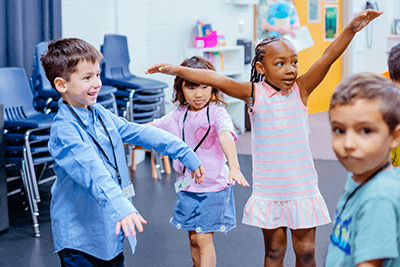September 4, 2025
 from James Ewer, Lower School director
from James Ewer, Lower School director
Mark Your Calendars
- Friday, September 5: Ice Cream Social, 3-4 PM, South Lawn
- Wednesday, September 10: LS/MS G3-5 Author Visit, 8-9:30 AM, Recital Hall
- Friday, September 12: LS Family Forum, 8-9:45 AM, Martin Lenz Harrison Library
- Monday, September 15: Returning Family Indexed Tuition Applications Open (Deadline December 1)
- Tuesday, September 16: MPA PA Grade Rep Meeting, 8-9 PM, Martin Lenz Harrison Library
- Friday, September 19: LS Duty-Free Lunch with Parent Volunteers, 11:30 AM-12:40 PM, Playground and Family Commons
- Sunday, September 21: MPA at the Twins, 1:10-3:30 PM, Target Field
- Monday, September 22-Saturday, September 27: Homecoming Week
- Wednesday, September 24: LS Homecoming Assembly, 8:15-9 AM, Family Commons
- Thursday, September 25: ISACS Parent Series Webinar, 6:30 PM
Dear MPA families,
We did it—our first week together is officially in the books! I want to begin by thanking you for committing to being in concert with us this year. Walking the halls and being in classrooms these past few days has reminded me why we are here: to value, affirm, and love each of our students every single day.
Already, your littles have shown us just how loving, resilient, and engaged they are. From the way they welcome one another at morning arrival (I’ve gotten a lot of fist bumps and hugs), to the persistence they’ve shown when tackling new routines and learning, to the joy they bring into every corner of our community—it has been inspiring. Their energy fills me with hope for all we’ll do together this year.
Thank you for entrusting us with your children and for walking alongside us in this work.
Our Community Agreements
At MPA, we believe a strong community grows when we all share ownership in how we learn and live together. This year, our students are practicing Community Agreements that highlight respect, kindness, curiosity, and care. You’ll see and hear these agreements shaping how we move through the day—they are the foundation for the safe, inclusive, and joyful learning environment we want for every child. Please review the Community Agreements and enjoy seeing your littles in the pictures!
Upcoming FastBridge Assessments
As we begin the school year, I want to share some key information about our upcoming FastBridge assessments for students in kindergarten through fourth grade. These assessments in reading and math take place three times a year (fall, winter, spring) and help us:
- Understand each child’s strengths and areas for growth
- Track progress over time
- Inform classroom instruction and future conferences
- Provide middle school teachers with valuable insights when students transition
Fall Testing Window: Begins the week of September 15.
By Grade:
- Kindergarten and first grade: One-on-one early reading and math assessments (phonemic awareness, phonics, decoding, sight words; number identification and number sense).
- Second through fourth grade: Computer-based assessments (fluency and comprehension for reading; general math understanding and multi-step problems for math).
You’ll receive a detailed schedule and more information as testing approaches. Our goal is to make the process smooth and meaningful while ensuring we gather the best data possible to support each student’s learning journey.
Thank you for your partnership as we begin this important work! Please don’t hesitate to reach out with questions.
Spotlight on Growth Mindset
One of the research-informed practices guiding our work this year is the idea of a growth mindset—the belief that intelligence and abilities can be developed through effort, strategies, and support. Students who embrace a growth mindset see challenges not as roadblocks but as opportunities to learn and grow.
Think back to when you learned how to ride a bike—no one hops on and rides perfectly the first time. A growth mindset says, “Scrapes and bruises mean I am learning,” while a fixed mindset says, “I’m never doing this again.” Helping kids see mistakes as a part of the process not only builds resilience but also makes learning more fun.
A growth mindset is the belief that our abilities, intelligence, and talents can be developed through effort, strategies, and support. Research shows that a growth mindset fosters creativity, confidence, resilience, and love of learning. When children develop these things, they will be able to take on many more challenges, take risks and learn from them. Encouraging this helps set the foundation for lifelong learning and success.
How can you help foster this at home?
- Use the word “yet”: Turn “I can’t do this” into “I can’t do this yet.”
- Praise your child’s effort: Instead of saying, “You are so smart”, try “I love how hard you worked on that.”
- Normalize making mistakes and not giving up: Let them see you make a mistake or keep trying when something is tough.
- Encourage problem-solving: Ask questions instead of giving the answer right away. Celebrate progress; cheer them on along the way!
All these little things add up to nurture a growth mindset in your child.
Closing Note
Thank you again for the energy, trust, and partnership you’ve brought into this first week. We are just getting started, and I can’t wait to see how our students —and our community—continue to grow.
Value. Affirm. Love.
Mr. Ewer